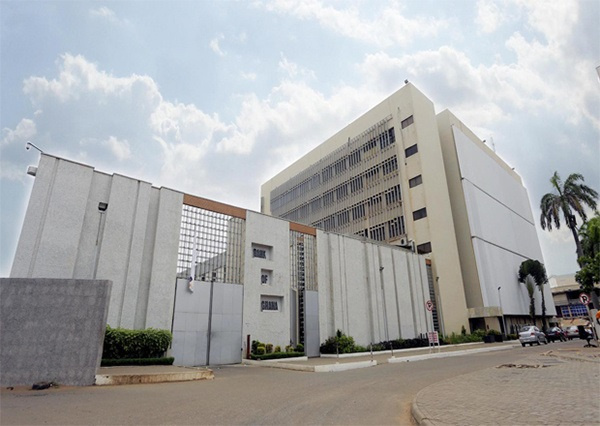The Governor of the Bank of Ghana, Dr Ernest Addison, has commended Parliament for playing a crucial and multifaceted role in the country’s debt restructuring programme.
He said one of such crucial roles was the approval of the 2023 budget and its debt restructuring and economic reforms components which gave the government the legal framework to undertake the debt restructuring.
Dr Addison gave the commendation in a speech read on his behalf by the Secretary of the bank, Sandra Thompson, at a three-day round-table engagement with parliamentarians and other stakeholders of the economy in Koforidua, the Eastern regional capital, last Monday.
Also in attendance were officials from the Bank of Ghana, the central banks of Nigeria, The Gambia, Liberia and Sierra Leone.
Partnership
The event is a joint capacity-building initiative among the World Bank Group (WBG), Westminster Foundation for Democracy (WFD) and West African Institute for Financial and Economic Management (WAIFEM).
The meeting, which was organised by the West African Institute for Financial and Economic Management (WAIFEM), was also to ensure transparency and accountability in public debt management.
Dr Addison said Parliament scrutinised all aspects of the debt restructuring plans to ensure transparency, thus affording Ghanaian bondholders the confidence to participate in the country’s debt exchange programme.
He also added that Parliament’s efforts ensured that the debt restructuring followed due processes and complied with regulatory provisions, especially in the case of external debts which involved approving international commercial transactions.
Checks & balances
The BoG said the political parties in opposition as well as citizens such as retirees and domestic creditors also voiced their concerns about the impact of the debt restructuring on the economy which reflected the democratic process of checks and balances.
That, he explained, served as valuable input into the debates and decisions of Parliament.
Dr Addison indicated that in view of such contributions from Parliament and Ghanaians, especially retirees, Ghana successfully secured an agreement to restructure about 5.4 billion dollars in loans with official creditors.
Debt distress, legal framework
That, the Governor explained, had been an essential step in the country’s debt sustainability and economic stabilisation efforts and that such actions were decisively implemented to alleviate the effects of debt distress that seriously impaired Ghana’s prospects for future growth.
In that respect, the Bank of Ghana Governor stated that the fiscal and monitoring authorities had focused on deepening economic reforms to ensure long-term micro-fiscal and debt sustainability.
Dr Addison further stated that on the whole, public debt management legislation enacted by Parliament established the legal and institutional frameworks for budget execution and debt management which ensured accountability and transparency.
Challenges
The Director-General of the WAIFEM, Dr Baba Musa, said Parliament and debt managers must engage constructively to enhance transparency and accountability in public debt management.
He said, however, such engagements often faced challenges due to the two entities’ lack of awareness and understanding of each other’s mandates.
Dr Musa indicated that it was therefore necessary that clarity be brought to bear on the parameters of engagements to help engender positive policy outcomes.
The Lead Debt Specialist of the World Bank, Lars Jessen, said the main objective of the meeting was to see how best to improve debt management of the economies of the various countries within the sub-region.
Limited roles
Mr Jessen said by his observation, Parliaments had been playing quite a limited role in debt management but such role needed to be expanded.
He said by the assessment of the World Bank, it was able to know countries that published debt management strategies.
The Head of Practice Accountability of the Westminster Foundation for Democracy (WFD), Franklin De Vrieze, said Parliaments had the responsibility to ensure that governments spent on the needs of citizens.
Source: Graphiconline

